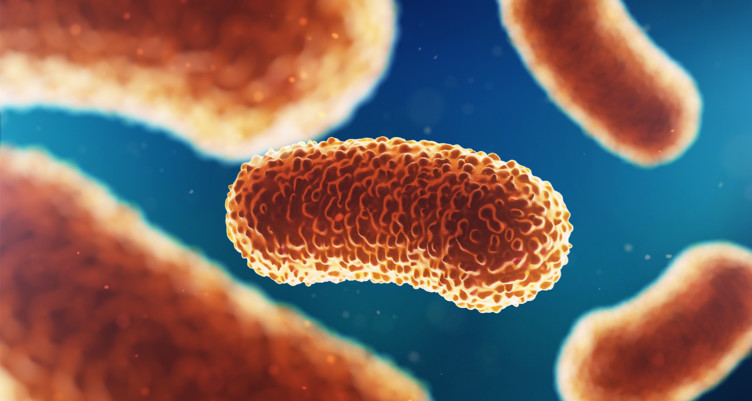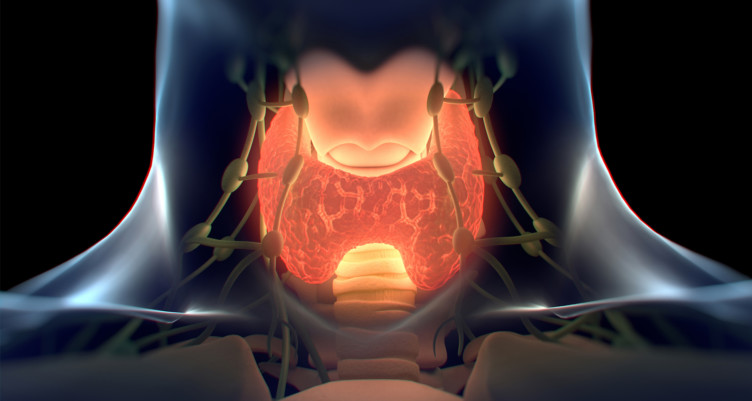How Your Gut Microbiome Influences Your Hormones

Throughout the day, your hormones ebb and flow like the tides. A surge of cortisol wakes you up in the morning, boosted by your cup of coffee. Then in the evenings, melatonin lulls you to sleep. Around mealtimes, leptin signals when it’s time for food. And while you’re eating, ghrelin tells you when you’ve had enough.
The endocrine system — a collection of glands — is responsible for creating and releasing hormones into the bloodstream to be carried to organs throughout the body.
However, growing research shows that the bacteria in your gut influence your hormones more than you might think. Read on to find out everything you need to know about the gut-hormone connection, and how your gut bacteria impact major hormones, including estrogen and your thyroid hormones. Then discover the best ways to fix your gut and bring it into balance.
Related: How to Improve Gut Health and Support Your Microbiome
The gut–hormone connection

Researchers are finding that your gut microbiome may be the most important player in the endocrine system.[1] That’s because your gut microbiota acts like a conductor at the center of the orchestra, leading your symphony of hormones. Not only does the gut microbiome produce hormones, it can also signal to the glands in your body, letting them know how much of each hormone should be created and released.
Your gut microbiota influences nearly every hormone in the body, including:
- Your thyroid hormones
- Estrogen
- Melatonin
- Stress hormones like cortisol
Read on for a closer look at how your gut bacteria affects these hormones.
Your gut microbiome and thyroid hormones

Low microbial diversity — when you don’t have enough different types of gut bacteria — has been linked with high thyroid stimulating hormone (TSH) levels.[2] Too much TSH may cause your body to produce lower levels of thyroid hormones T3 and T4, sometimes leading to hypothyroidism. An imbalanced gut microbiome is also associated with hypothyroidism[3] — when your thyroid produces too little TSH. Common symptoms of hypothyroidism include weight gain, sensitivity to cold, dry skin, constipation, and poor memory.[4]
The bottom line: thyroid hormone production and your gut are connected — making gut health a top priority for anyone dealing with thyroid issues.
Your gut microbiome affects estrogen balance

Estrogen is typically associated with women, but men also need it in just the right amounts. Your gut microbiota is a key regulator of the level of circulating estrogen in the body. Your microbes produce an enzyme, beta-glucuronidase, that converts estrogen into its active forms.[5] Dysbiosis — aka an imbalanced microbiome — can change the amount of active estrogens in the body.
There’s actually a specific group of microbes that make up what’s called your ‘estrobolome.’ Your estrobolome consists of bacterial genes that are capable of metabolizing estrogens, which is important because estrogen is a potent promoter of tissue growth throughout the body.[6]
Your gut microbiome and melatonin

You probably associate melatonin with a good night’s sleep. That’s because melatonin makes you tired, and it helps you fall and stay asleep. For your body to make sufficient melatonin, it needs plenty of serotonin — the hormone that regulates your moods. Over 90% of your serotonin is produced by bacteria in your gut.[7]
Researchers have found that shift workers tend to suffer from gut imbalances. It turns out, insufficient sleep can cause negative effects on the intestinal microbiome. Shift work has been shown to increase inflammation in the body and raises the risk of obesity, metabolic syndrome, and type II diabetes.[8]
You need sufficient melatonin to be released at the right time so you fall asleep easily at night. Melatonin helps your body maintain healthy sleep and wake cycles and can promote a sense of calm. Sticking to a regular wake-up and bedtime schedule helps your body, and your microbes, maintain natural rhythms essential to your health.
Your gut microbiome can sound the alarm with infection

Cortisol, epinephrine, and norepinephrine are hormones that put your body on high alert. Your body typically releases them during your flight-or-flight response, causing your heart rate and blood pressure to increase. In times of emergency, these hormones can be a good thing. But when they remain at high levels for too long, they can change the dynamics of the gut microbiome.
High levels of stress hormones have also been shown to trigger harmful gene expression in some microbes. In animal studies, high epinephrine and norepinephrine levels actually stimulated a full-blown infection by increasing the virulence of some pathogens.[9]
Looking to balance your hormones? Start with the gut
If you’re interested in balancing your hormones, it’s a good idea to work on your gut health first.[10][11]
Here are 3 ways to start balancing your gut microbiome today:
- Eliminate refined sugar: Cutting out refined sugar is one of the most powerful ways to heal your gut. Many of the bacteria that cause problems love sugar. When you eat lots of refined sugar, you feed them and create an optimal environment to set up shop in your gut microbiome.[12]
- Eat organic whenever possible: Eating a variety of organic vegetables is good all around, though some people can process certain foods better than others, depending on what’s in your gut microbiome. When you’re cooking up your veggies, go organic. These have fewer pesticides, which can harm the microbes living in your gut.[13]
- Take a gut test: To fix your gut, it helps to know what’s going on in there. That way you can make the necessary changes to bring your gut back into balance. Viome is a company that can analyze what the microbes in your gut are doing and if they are causing an imbalance. Viome’s technology identifies the exact species and strain of all organisms to figure out whether they produce nutrients or toxins inside the body. Viome then gives you a detailed, personalized report on what foods to avoid and what foods to include in your diet. You can use this information to make changes to what you eat, improving your microbial balance.



